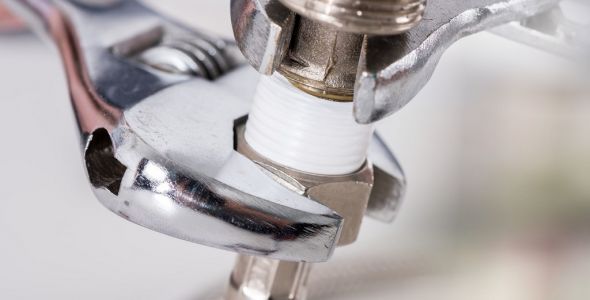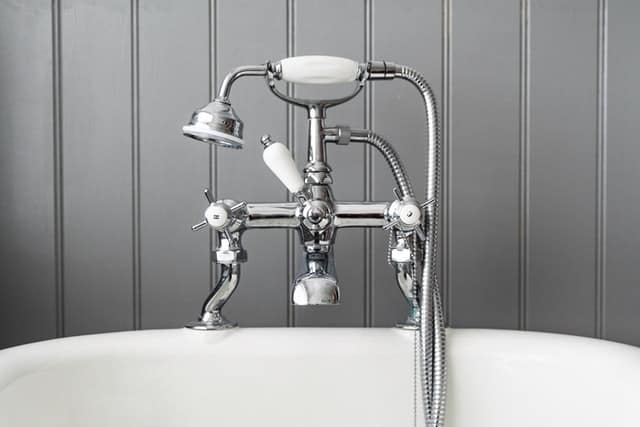The content in the next paragraphs relating to How to stop pipes from freezing during the winter is seriously remarkable. Don't miss it.

All homeowners who stay in temperate climates need to do their ideal to winterize their pipelines. It is something you must do during autumn before deep wintertime truly begins. Failure to do so can spell disaster like frozen, broken, or burst pipes. Here are some handy winterizing hacks to keep your plumbing system protected even if the weather exterior is shocking.
Attempt a Hair Clothes Dryer or Heat Weapon
When your pipes are nearly freezing, your dependable hair clothes dryer or warm gun is a blessing. If the hot towels do not help displace any kind of settling ice in your pipes, bowling hot air straight into them might help. Nonetheless, do not use other things that create straight flames like a strike lantern. This can result in a larger catastrophe that you can not manage. You may wind up damaging your pipelines while trying to melt the ice. And in the long run, you may even end up burning your residence. Be cautious!
Open Cabinet Doors Hiding Plumbing
When it's cold outside, it would be useful to open closet doors that are concealing your pipes. Doing this tiny method can keep your pipes warm as well as limit the possibly harmful outcomes of freezing temperature levels.
Take Time to Wrap Exposed Piping
One nifty and easy hack to warm up icy pipes is to wrap them with warm towels. You can also use pre-soaked towels in warm water, simply do not fail to remember to use protective gloves to guard your hands from the warmth.
Switch on the Faucets
When the temperature drops and it appears as if the freezing temperature will certainly last, it will certainly help to activate your water both inside your home and outdoors. This will certainly keep the water moving with your plumbing systems. Additionally, the activity will reduce the cold procedure. Significantly, there's no demand to turn it on full force. You'll end up losing gallons of water this way. Instead, go for about 5 decreases per min.
Shut Off Water When Pipes are Frozen
If you observe that your pipelines are totally frozen or almost nearing that phase, transform off the primary water valve immediately. You will usually locate this in your basement or utility room near the heating system or the front wall closest to the street. Turn it off right away to stop further damages.
Don't neglect to close exterior water sources, as well, such as your hookup for the garden residence. Doing this will stop additional water from filling your plumbing system. With even more water, more ice will stack up, which will ultimately lead to rupture pipes. If you are unsure about the state of your pipelines this winter, it is best to call a specialist plumber for an assessment. Taking this aggressive technique can conserve you thousands of bucks in repairs.
All house owners that live in temperate environments need to do their best to winterize their pipelines. Failure to do so can mean catastrophe like frozen, cracked, or ruptured pipelines. If the hot towels do not aid dislodge any kind of working out ice in your pipelines, bowling warm air directly into them might aid. Turn off the main water shutoff instantly if you notice that your pipelines are completely icy or almost nearing that phase. With more water, more ice will load up, which will eventually lead to rupture pipes.
PREVENT YOUR PIPES FROM FREEZING THIS WINTER
A Leading Cause of Property Damage
When the weather is taking a deep nose dive into the cold dreary days, the risk of your pipes freezing and potentially bursting skyrockets. Unfortunately, during these cold dreary months, burst pipes are the most common denominator for property damage. The pipes that are most at the risk are those that are in areas where it is most cold in your home. For instance, pipes located in interior places such as basements, attics, and your garage. Unfortunately, that doesn’t mean that the pipes running through your cabinets or exterior walls can’t freeze. Good news, however, is that you can do things to help prevent pipes from freezing.
How to Prevent Pipes From Freezing
Once the temperature starts to drop during the winter, you should be taking the proper measures needed to ensure that your pipes stay warm and that there is circulation of water through them. Some steps that experts may recommend could go against your better judgement when it comes to saving water and heat. However, it would go without saying that when expenses are compared, damaged pipes could put a bigger dent in your wallet than a water bill.
What Can I Do?
- Keep your garage door closed. This is very important, especially if you have water supply lines running through your garage.
- Open your kitchen and bathroom cabinets to allow warm air to circulate through them.
- Allow air circulation throughout your home. Keeping the interior doors open will once again allow the warm air to circulate inside your home.
- Ensure your thermostat is running the same temperature throughout the night and day.
- If you plan to be away from home during the cold months, set your temperature no lower than 55° F. This should provide enough heat to keep the pipes warm and prevent any remaining water inside the pipes from freezing.
- For more of a long-term solution, add insulation to attics, basement, and other crawl spaces around your home.
- By allowing your faucet to drip, it will alleviate pressure in the system. This is important because the pressure that is created between the blockage and the faucet can potentially cause the pipes to burst. Allowing the faucet to drip will prevent the pressure from building up, therefore keeping the pipes from bursting.
- Seal any cracks, openings, and crawl spaces around your home to prevent cold air from coming inside. This keeps your pipes-not to mention your home-warmer and less susceptible to issues caused by freezing temperatures.
- For the pipes in your home that are easily accessible, applying electrical tape to them might prevent them from freezing over. This is a quick fix, as you can apply the tape directly to the pipe. There are two options for heating tapes. One turns on and off by itself when it senses heat is needed. The other type of heating tape needs to be applied when heat is needed and removed when not necessary. If you have exposed pipes in your home, you can check this website to take a look at a few options that would be available at a shop near you.

I discovered that piece of writing about How to Prevent Frozen Pipes when doing research the web. Are you aware of another person who is involved in the niche? Feel free to share it. Thanks for going through it.
Plumbing woes? Connect.
Comments on “Our Recommended Winterizing Strategies: Five Approaches to Guard Pipe Bursts”